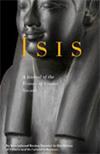古代地中海世界的流行病
IF 0.9
2区 哲学
Q2 HISTORY & PHILOSOPHY OF SCIENCE
引用次数: 0
摘要
本文概述了古代地中海流行病研究中可用(和不可用)的证据种类,迄今为止关于该主题的学术研究,以及对两者之间关系的一些思考。本书的重点是三次最受学术界关注的大规模流行病:公元前5世纪的“雅典瘟疫”;公元二世纪晚期席卷罗马帝国的“安东尼瘟疫”;以及公元6世纪首次席卷地中海的“查士丁尼瘟疫”。所有这些都存在相当大的证据挑战。这里有传统资源和丰富的古代医学文献遗迹,但我们现在也有新的考古和遗传证据。关于这些大流行病的研究问题必须扩大,而不仅仅是询问涉及什么疾病以及其在地中海的爆发造成了什么政治和经济影响,有时在相当有限的地理区域内。需要跨学科的研究来充分回答这些更广泛的问题。如果该领域要向前发展并充分利用其资源,所有突出的学科都需要参与其中,并适当注意它们的方法。本文章由计算机程序翻译,如有差异,请以英文原文为准。
Pandemics in the Ancient Mediterranean World
This essay outlines the kinds of evidence available (and not available) for studies of ancient Mediterranean pandemics, the scholarship on the subject so far, and some reflections on the relationship between the two. The focus is on the three largescale epidemic episodes that have attracted the most scholarly attention: the “Plague of Athens” in the fifth century BCE; the “Antonine Plague,” which spread across the Roman Empire in the late second century CE; and the “Justinianic Plague,” which first engulfed the Mediterranean in the sixth century CE. All present considerable evidential challenges. There are traditional resources and the rich remains of ancient medical writings, but we also now have at our disposal new archaeological and genetic evidence. The research questions on these pandemics must be expanded beyond asking what disease was implicated and what political and economic impact its Mediterranean outbreaks had, sometimes within quite a restricted geographical area. Interdisciplinary research will be required to answer these wider enquiries fully. All the salient disciplines need to be involved, with due attention to their methodologies, if the field is to move forward and make the most of its resources.
求助全文
通过发布文献求助,成功后即可免费获取论文全文。
去求助
来源期刊

Isis
管理科学-科学史与科学哲学
CiteScore
1.00
自引率
16.70%
发文量
150
审稿时长
>12 weeks
期刊介绍:
Since its inception in 1912, Isis has featured scholarly articles, research notes, and commentary on the history of science, medicine, and technology and their cultural influences. Review essays and book reviews on new contributions to the discipline are also included. An official publication of the History of Science Society, Isis is the oldest English-language journal in the field.
The Press, along with the journal’s editorial office in Starkville, MS, would like to acknowledge the following supporters: Mississippi State University, its College of Arts and Sciences and History Department, and the Consortium for the History of Science, Technology, and Medicine.
 求助内容:
求助内容: 应助结果提醒方式:
应助结果提醒方式:


